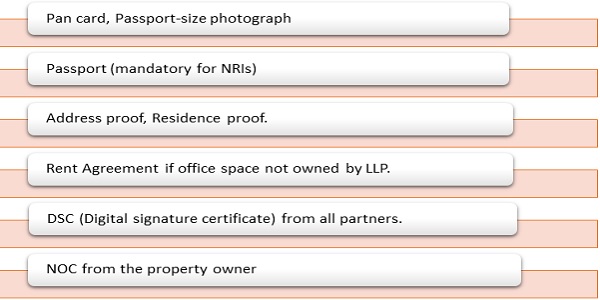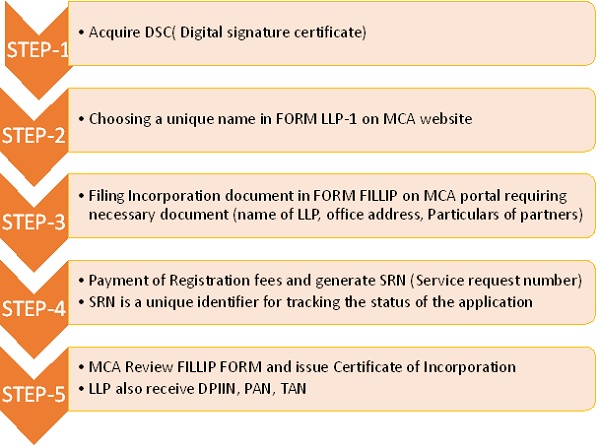The concept of Limited Liability Partnership (LLP) has become increasingly popular among businesses in India, proposing a flexibility, limited liability, and operational efficiency. LLPs are an outstanding choice for small to medium-sized businesses, start-ups, and even professionals who want to operate under a healthy legal structure. If you are considering to start a business in LLP, here are important things to know about LLP
What is LLP and its importance?
A limited liability partnership is a partnership in which some or all partners have limited liabilities. It therefore can reveal aspects of both partnerships and corporations. In an LLP, each partner is not responsible or liable for another partner’s misconduct or negligence.
LLPs have become popular among entrepreneurs in various industries because they shield partners’ assets and have more upfront regulatory requirements than traditional corporations. The concept of LLP was introduced in India in 2008 and is governed by the Limited Liability Partnership Act.
Pre-requisites for LLP
To qualify for the LLP company registration in India, you must follow to the subsequent criteria:
- Minimum of Two Partners: Establishing a Limited Liability Partnership in India necessitates a minimum of two partners, with no upper limit threshold on the maximum number of partners.
- Designated Partners: Within the partnership framework, there should be at least two selected partners are obligatory, and they must be natural individuals. At least one of these designated partners must also maintain residency in India for an LLP incorporation.
- Agreed Contribution: Each partner is required to contribute the shared capital of the LLP, as specified and agreed upon.
- Indian Resident Designated Partner: At least one designated partner of the LLP must hold a resident status in India.
What are the advantages of a LLP in business?
Some advantages of Limited Liability Partnership (LLP) include:
- Separate legal entity: Having a separate identity, LLP can practice certain benefits like owning property, entering contracts, likable in legal proceedings, etc independently.
- Limited liability of the partners: With limited liability, partners are not responsible for the LLP‘s debts and obligations. It is limited to only paying the contributions agreed upon to protect their assets.
- Low cost and less compliance: LLP is a low-cost enterprise in comparison to any corporation. With less regulatory and compliance requirements an LLP is easier to manage.
- Minimum capital contribution: There is no requirement to have a minimum capital before forming an LLP. It can be formed with any amount of capital contributed by the partners.
The key differences between an LLP and Partnership
| Aspect | LLP (Limited Liability Partnership) | Partnership |
| Liability | Partners have limited liability, protecting personal assets. | Partners have unlimited liability, meaning personal assets can be used to settle debts. |
| Legal Status | Separate legal entity from its partners. | Not a separate legal entity; partners are personally liable. |
| Registration | Must be registered with the government. | No formal registration is required |
| Management | Managed by all designated partners. | All partners generally manage the business. |
| Number of Partners | Minimum of 2, no upper limit. | Minimum of 2, typically no upper limit. |
| Transfer of Ownership | Ownership can be transferred, but requires consent from other partners. | Ownership transfer is often difficult and may require the agreement of all partners. |
| Continuity | LLP has perpetual succession, continues even if a partner leaves or dies. | Partnership dissolves upon the death or exit of a partner, unless agreed otherwise. |
Which One is Better ?
LLP is generally considered better for businesses looking for limited liability protection, perpetual succession, and a more formal structure. It is seamless for professionals (lawyers, accountants, etc.) or businesses that want limited liability without the difficulty of a corporation.

Identification Documents for LLP Registration:

LLP can assess funds through:

How to Register an LLP in India?

Compliances after LLP Incorporation
| S. No | Form Name | Due Date | Purpose |
| 1 | Form 8 (Statement of Accounts & Solvency) | 30th October (Annually) | To file annual financial statements and a declaration of solvency. |
| 2 | Form 11 (Annual Return) | 30th May (Annually) | To file the annual return with details of partners, business activities, etc. |
| 3 | Form 3 (LLP agreement) | At the time of incorporation | To file the LLP agreement document. |
| 4 | Form 4 (Notice of Partnership/Change in Designated Partners) | Within 30 days of change | To inform any changes in the designated partners. |
| 5 | Form 12 (Application for Conversion) | If converting from partnership to LLP | To convert a partnership into an LLP. |
| 6 | Form DIR-3 (Director Identification Number) | Before appointment of partners (if applicable) | To obtain a director identification number for partners. |
| 7 | Form 24 (Change in LLP Agreement) | Within 30 days of change | To file changes made in the LLP agreement. |
| 8 | Income Tax Return (ITR-5) | 31st July (Annually) | To file the income tax return for the LLP. |
| 9 | GST Return (GSTR-1, GSTR-3B) | Monthly or Quarterly | To file GST returns if the LLP is GST registered |
Registration of LLP in Past months
Based on the analysis, it can be concluded that, on average, 5,000 LLP (Limited Liability Partnership) companies are being registered every month. This consistent growth in registrations indicates a steady trend in the formation of LLPs, suggesting an increasing confidence in this business structure as a preferred choice for entrepreneurs and businesses.

Conclusion
The Registration process of LLP in India is an essential step for businesses looking to enjoy the benefits of a traditional partnership structure with benefits like limited liability protection, legal recognition, and flexibility in conducting operations. Registering an LLP not only provides legal identity to the business, but also opens doors to easy funding, credit, and business opportunities. Therefore, understanding ‘how to register an LLP’ or following the procedure for Registration of LLP is critical for all aspiring entrepreneurs looking forward to establishing their start-ups in India.
****
Disclaimer: The entire content of this article has been prepared based on relevant provisions and the information available at the time of preparation. While care has been taken to ensure the accuracy, completeness, and reliability of the information provided, the author assumes no responsibility for any errors or omissions. Users of this information agree that it is not professional advice and is subject to change without notice. The author assumes no responsibility for the consequences of using this information. IN NO EVENT SHALL THE AUTHOR BE LIABLE FOR ANY DIRECT, INDIRECT, SPECIAL, OR INCIDENTAL DAMAGE RESULTING FROM OR ARISING OUT OF OR IN CONNECTION WITH THE USE OF THIS INFORMATION.
The author, CS Monika Malhotra (Practicing Company Secretary), can be reached at csmonikamalhotra26@gmail.com or +91-9958089808.





